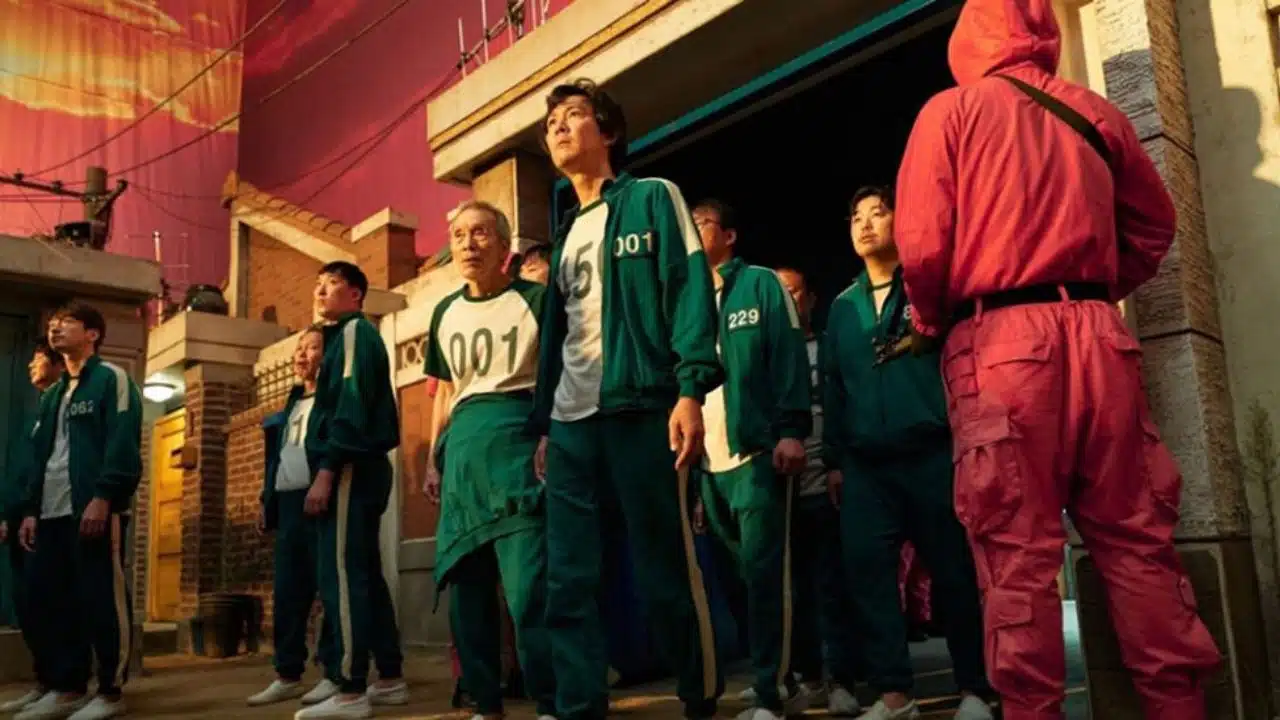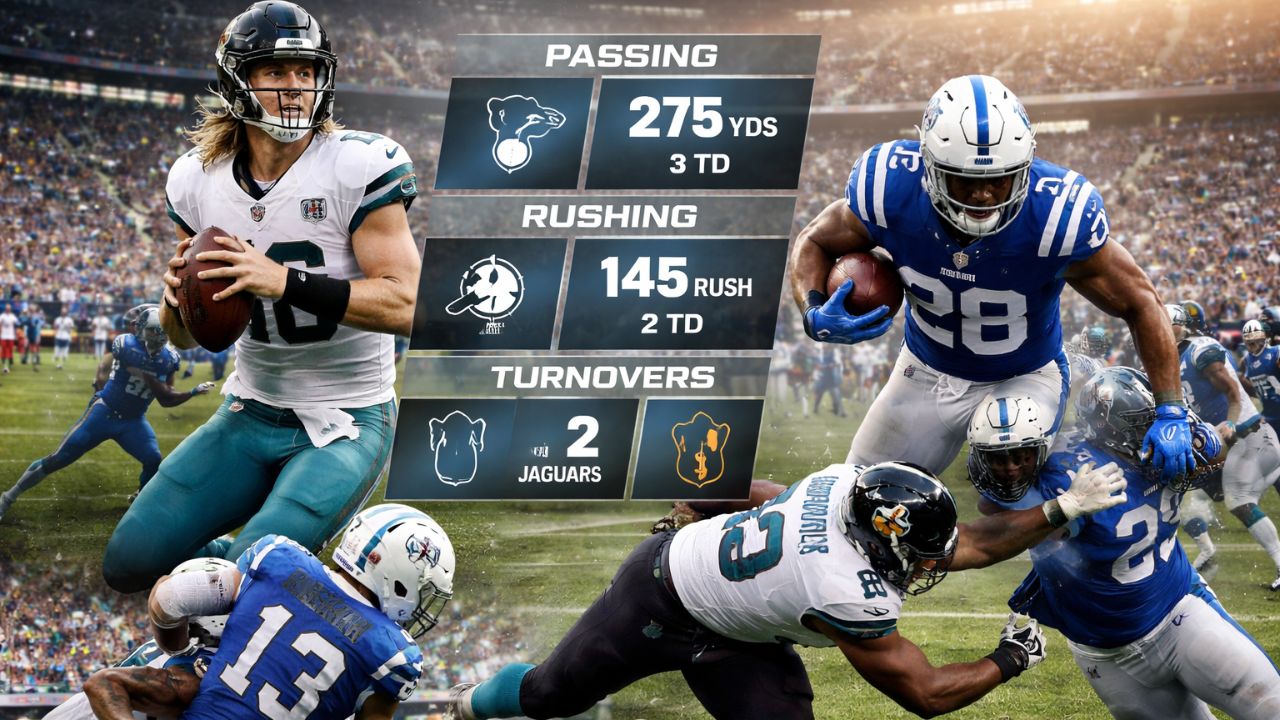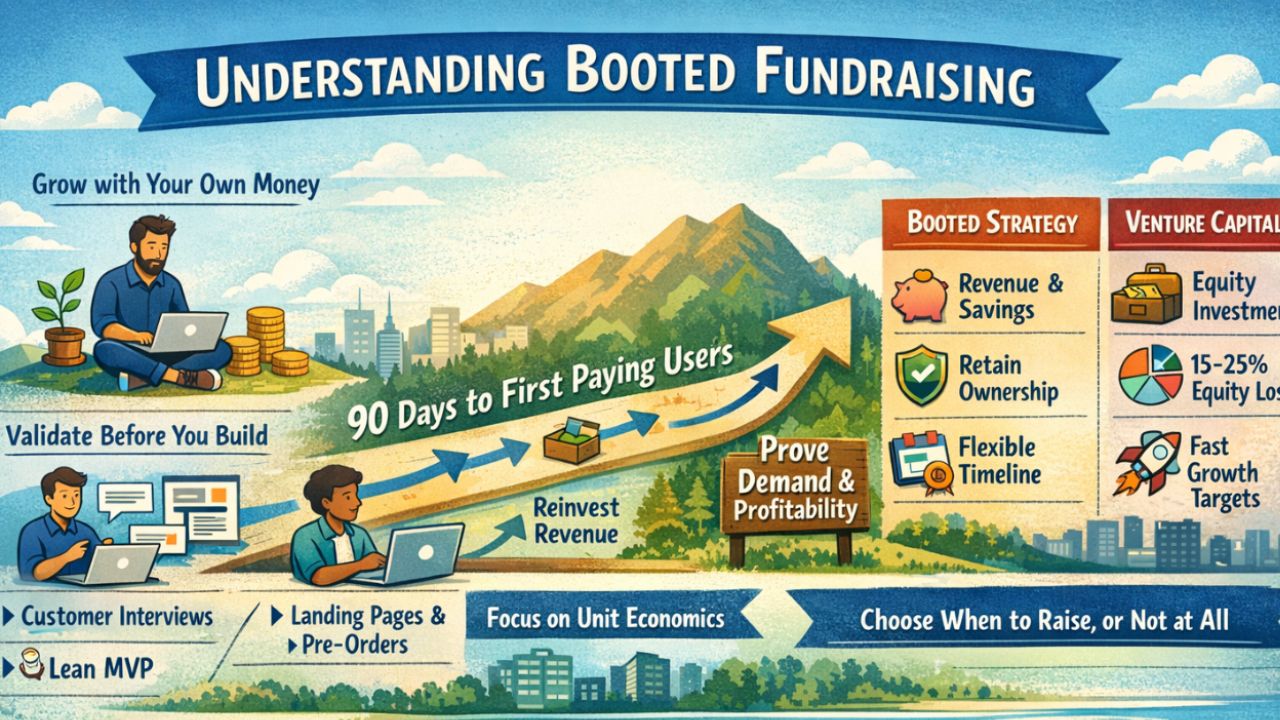Squid Game, Netflix’s globally acclaimed thriller, returns with its second season to tackle humanity’s growing social divides and existential struggles, venturing even deeper into its timely themes of power, desperation, and survival. Hwang Dong-hyuk, the creator and mastermind behind the series, describes season two as a dramatic exploration of people “taking sides.” In the show, characters are reduced to factions, red or blue, and these opposing identities define both their allegiance and fate.
Filming in Studio Cube, Korea’s premier production facility, Hwang has transformed the Squid Game dormitory set. Now, bold blue and red symbols—an “O” and an “X”—adorn the floor, symbolizing the polarizing choices that the players must confront. In the middle of these symbols, a bisecting red-and-blue line highlights the divisions in the game—and by extension, in society. This setting emphasizes the tension of divided ideologies, a motif that Hwang says is both global and timeless.
Hwang anticipates that season two’s release, around the U.S. presidential election, will resonate worldwide, aligning the fictional competition with real-world political rivalries. “The world today is filled with division, whether it’s by generation, socioeconomic status, or belief,” Hwang shared. “I wanted to show how choices can lead to conflict and ask if there’s a way to overcome these divides.”
Squid Game’s Return as a Cultural Touchstone
As the series prepares to air its second season, Squid Game has become more than a pop culture phenomenon—it’s a powerful commentary on social structures. From its violent yet captivating games that serve as metaphors for the everyday struggles of marginalized individuals, to its striking use of visuals that contrast childhood games with deadly consequences, Squid Game’s cultural impact is undeniable. The first season resonated with global audiences, becoming Netflix’s most-watched show across 94 countries in less than two weeks.
The new season continues to echo these themes but takes them further. In season one, players initially had the option to end the game via majority vote, though most chose to return after finding that the harsh realities outside the game mirrored those inside. Season two intensifies this dilemma: the players must now vote after each round, forcing them to align with one of two starkly different perspectives. One group, driven by financial desperation, believes they have what it takes to win in a winner-take-all scenario. The other faction is more cautious, fearing that losing would mean mutual destruction.
Hwang suggests that this tension speaks to the nature of modern democracy. “In a democratic society, everyone has the right to vote, yet it is the dominant side that decides. This season asks the question: Is the majority always right?”
A Global Success That Surpassed All Expectations
Despite Squid Game’s low-key debut on Netflix in September 2021, the show’s unexpected success rewrote Netflix’s playbook. Released two days after the 2021 Emmys—a time generally avoided by networks aiming for awards buzz—the series reached over 142 million households in its first month, cementing it as Netflix’s most-watched show. Squid Game exceeded Netflix’s expectations by attracting a worldwide audience with a $2.4 million-per-episode budget, far lower than most top U.S. series.
The series tapped into the collective consciousness of a post-pandemic, economically anxious world, where themes of survival and inequality resonated across cultures. It surpassed popular franchises like Bridgerton and Wednesday, becoming Netflix’s most-watched title globally and reaching a level of success that few international series achieve. Bajaria, Netflix’s chief content officer, reflected on this achievement, saying, “We knew Squid Game would do well in Asia, but its global impact was beyond what we’d anticipated.”
With this staggering success behind it, season two promises an even stronger launch. This time, Netflix has given Squid Game a high-profile holiday release, debuting it right after their exclusive NFL games on Christmas 2024—a surefire strategy to attract global viewers.
Hwang’s Social Commentary: A Story Built on Hardships and Personal Struggle
The creator’s inspiration for Squid Game comes from deeply personal experiences. Hwang conceived the idea during a particularly challenging time in his career when a film project fell apart, leaving him financially vulnerable. He spent his days in comic book cafes, immersed in survival manga that grappled with themes of life and death competitions. As Hwang explained, these stories inspired him to imagine a world where ordinary people could stake their lives in games for financial redemption.
Hwang’s own struggles with poverty shaped Squid Game’s powerful social commentary. After losing his father to cancer at age five, Hwang’s family struggled to survive. His mother worked tirelessly in multiple jobs to support the family, but they continued to live on the edge of poverty. “My mother worked hard, but despite her efforts, we were still poor,” Hwang recalls. His journey is paralleled in the character of Sang-woo, who, after early academic success, is later forced into the Squid Game due to crushing debt and failed investments.
Season two expands on this portrayal of financial desperation, with new characters reflecting recent economic trends. During the COVID-19 pandemic, many young people in South Korea turned to cryptocurrencies in hopes of quick financial gains. However, some ended up in even greater debt, and Hwang has incorporated this generational crisis into his storyline. The new season introduces characters like Jo Yu-ri and Yim Si-wan, a couple who entered the game after falling victim to the crypto market’s volatility.
Familiar Faces and Evolving Storylines
While season two brings a host of new characters, several key figures from season one are returning. Gi-hun, played by Lee Jung-jae, finds himself unable to leave behind the horrors of the game. At the end of season one, he was on the verge of flying to the United States to reunite with his daughter but decided to stay, determined to put an end to the sadistic competition. Hwang likens Gi-hun’s journey to Neo in The Matrix, who chooses to confront reality rather than live in blissful ignorance.
In addition to Gi-hun, Lee Byung-hun returns as Front Man, the masked figure running the deadly games. This season will delve into Front Man’s backstory, revealing more of his motives and personal struggles. “After season one, I spoke with Hwang about where this character could go,” says Lee Byung-hun. “In season two, we get to explore his journey and why he chose this path.” Other returning characters include Jun-ho, the detective played by Wi Ha-joon, and the Recruiter, portrayed by Gong Yoo, whose initial encounter with Gi-hun introduced the game’s allure.
Confronting Creative Challenges Amid Pressure
For Hwang, Squid Game’s unprecedented success comes with new challenges. He’s determined to make season two as impactful as the first, despite the added expectations. “Every day, I worry if the games will be as thrilling, if the characters will resonate,” Hwang admits. “I want season two to live up to what people expect while pushing boundaries.”
To meet these expectations, Hwang has adopted the mantra “Comfort Zone Will Kill You,” a phrase emblazoned on his black baseball cap. Embracing discomfort, he says, fuels his creativity and ensures that he doesn’t settle for anything predictable. “When I face fear, it motivates me to find solutions that might otherwise be overlooked. Season two is my greatest challenge, and it could either be my biggest success or my biggest failure.”
From Indie Film to Cultural Phenomenon: The Global Reach of Korean Pop Culture
The explosive success of Squid Game marks a new milestone in the global reach of Korean pop culture, known as Hallyu. Already on the rise, with popular exports like Parasite and BTS, Korean content reached new heights with Squid Game, signaling a cultural shift. Bajaria notes, “Squid Game changed where people expect big stories to come from. It’s a reminder that universal stories can emerge from any part of the world.”
Netflix’s response to Squid Game’s success reflects the industry’s shifting focus on international content. The platform has pledged to invest $2.5 billion in Korean film and TV over four years, securing the resources Hwang needs to fully realize his vision. With a larger budget and improved CGI, Hwang can now create scenes and settings that were previously limited by budget constraints.
The casting process also reflects the series’ newfound status. During season one, many Korean actors were hesitant to join a Netflix production. Now, Squid Game’s international success has made it a desirable project for A-list talent. The season two cast includes popular actors from the Korean drama scene as well as K-pop idols like Jo Yu-ri, who had to audition four times to secure her role.
Squid Game’s Future: Season 2’s Darker Themes and Season 3’s Planned Conclusion
The return of Squid Game is not just a continuation—it’s a progression toward an even more intense showdown between Gi-hun and Front Man. Lee Jung-jae hints that Gi-hun’s character has evolved, becoming more hardened, but he’s still guided by his conscience. “Conscience was the word I kept in mind while filming,” Lee explains. “To call ourselves human, we must act on our conscience, and if we ignore it, we must feel the weight of shame.”
Season three, set for 2025, will bring the series to its conclusion. Until then, season two will push characters—and audiences—to confront unsettling questions about human nature, division, and the power struggles that define society. In Hwang’s words, the series is designed not to instruct but to provoke thought. “I want viewers to watch and come up with their own questions about the world.”
Balancing Commercial Success with Artistic Integrity
Hwang is aware of the commercial machine behind Squid Game, which has generated nearly $900 million in “impact value” for Netflix. The series has spawned real-world attractions, including an unscripted reality show, live experiences, and a planned video game. Yet Hwang remains focused on the message within the series, even if its success has resulted in unexpected commercial opportunities.
“At the end of the day, Squid Game is a product in a capitalist society,” he acknowledges. “While my goal is to entertain, I want the show to leave viewers with something meaningful.” In crafting Squid Game, Hwang has embedded every emotion he’s felt about human nature—from humor to tragedy—hoping to convey the complexities of life.
As Squid Game’s next season nears, it’s set to continue its legacy as both a gripping thriller and a profound cultural commentary on a world that’s increasingly defined by division, survival, and moral choices.
The Information is Collected from IMDb and Yahoo.







































